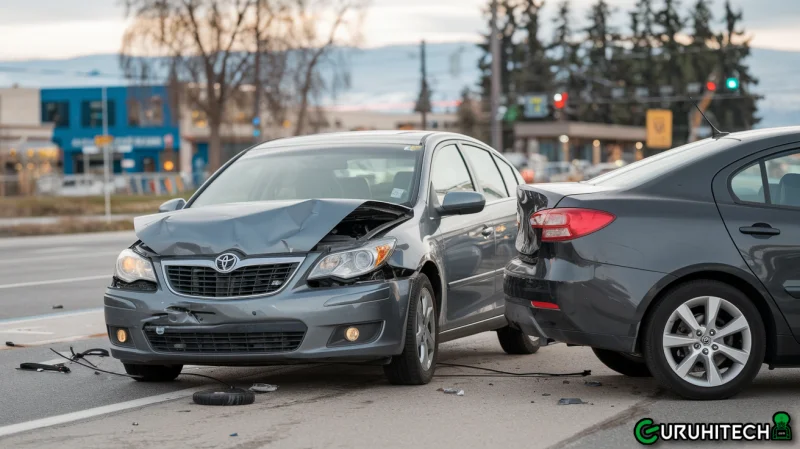How Fault is Assigned in Car Accidents in Idaho: What You Need to Know

In the realm of motor vehicle accidents, understanding how fault is assigned is crucial for drivers, insurance companies, and legal professionals alike. In Idaho, the processes and criteria used to determine fault can significantly impact the outcomes of claims and legal proceedings following an accident. Unlike some states that adhere to a no-fault system, Idaho operates under a modified comparative negligence model, where the degree of fault attributed to each party involved plays a pivotal role in the compensation process.
This article aims to elucidate the complexities surrounding fault assignment in car accidents in Idaho, exploring key factors such as traffic laws, evidence evaluation, and the role of insurance adjusters. Additionally, we will discuss the implications of being found at fault, including potential impacts on insurance rates and legal liability. With a clearer understanding of these elements, Idaho drivers can better navigate the aftermath of an accident, ensuring that their rights are protected and that they receive fair treatment in the claims process. Whether you’re a seasoned driver or new to the Idaho roadway, this comprehensive guide will equip you with the essential knowledge needed to effectively manage the challenges that arise in the wake of a car accident.
– Understanding Idaho’s fault assignment system
Assigning fault in a car accident in Idahois governed by a modified comparative negligence system. This means that when determining liability, the fault of each party involved in the accident is assessed on a percentage basis. If an individual is found to be 50% or more at fault for the accident, they are barred from recovering damages. This system encourages responsible driving behaviors, as it holds drivers accountable for their actions while providing a mechanism for fair compensation for those who are less at fault.
To effectively navigate the complexities of fault assignment in car accidents in Idaho, it is essential to gather comprehensive evidence at the scene, including photographs, witness statements, and police reports. Insurance companies often play a significant role in this process, as they evaluate the facts and apply the comparative negligence principles to determine how damages will be divided. Understanding these legal nuances can be crucial for individuals seeking to protect their rights and recover appropriate compensation after an accident.
– Key factors influencing accident fault determination
Several key factors influence the determination of fault in car accidents in Idaho. The actions of each party leading up to the incident are scrutinized, including adherence to traffic laws and road conditions. For instance, violations such as speeding, running red lights, or distracted driving can significantly impact the assignment of fault. Additionally, the presence of contributing factors like weather conditions, vehicle maintenance, and the behavior of pedestrians or cyclists can also play a critical role in establishing liability.
Witness accounts and physical evidence are pivotal in assigning fault in a car accident in Idaho. Eyewitness statements can provide insights into the circumstances surrounding the collision, while physical evidence, such as skid marks, vehicle damage patterns, and road signs, can help reconstruct the events. Insurance adjusters and legal professionals rely heavily on this information to assess each party’s level of negligence accurately. In many cases, expert testimony may also be necessary to interpret complex data, emphasizing the importance of a thorough investigation in achieving a fair resolution.
– Steps to take after an accident
After an accident, it is crucial to take specific steps to ensure your safety and preserve vital information that may be needed for determining liability. First, check for injuries and call for medical assistance if necessary. Regardless of the severity of the incident, it’s advisable to notify law enforcement, as a police report can provide an official account of the event, which may be instrumental in future proceedings related to assigning fault in a car accident in Idaho.
Once safety is ensured and authorities are involved, gathering evidence becomes essential. Document the scene by taking photographs of all vehicles, the surrounding area, and any relevant traffic signs or signals. Collecting contact details of witnesses and exchanging information with the other driver, including insurance details, is also important. This documentation will aid in establishing the circumstances leading to the crash and supporting your position in discussions with insurance companies or in legal matters that may arise from the incident.
In conclusion, understanding how fault is assigned in car accidents in Idaho is crucial for anyone navigating the aftermath of a collision. The state’s comparative negligence laws allow for a fair assessment of responsibility, ensuring that all parties involved are held accountable based on their degree of fault. It is essential for drivers to be aware of the factors that contribute to fault determination, such as traffic laws, evidence from the scene, and witness statements. By being informed about these processes, individuals can better protect their rights and interests, particularly when it comes to insurance claims and potential legal proceedings. As always, consulting with a qualified legal professional can provide additional guidance tailored to specific situations, ensuring that you are well-equipped to handle the complexities of fault assignment in Idaho.
Ti potrebbe interessare:
Segui guruhitech su:
- Google News: bit.ly/gurugooglenews
- Telegram: t.me/guruhitech
- X (Twitter): x.com/guruhitech1
- Bluesky: bsky.app/profile/guruhitech.bsky.social
- GETTR: gettr.com/user/guruhitech
- Rumble: rumble.com/user/guruhitech
- VKontakte: vk.com/guruhitech
- MeWe: mewe.com/i/guruhitech
- Skype: live:.cid.d4cf3836b772da8a
- WhatsApp: bit.ly/whatsappguruhitech
Esprimi il tuo parere!
Ti è stato utile questo articolo? Lascia un commento nell’apposita sezione che trovi più in basso e se ti va, iscriviti alla newsletter.
Per qualsiasi domanda, informazione o assistenza nel mondo della tecnologia, puoi inviare una email all’indirizzo [email protected].
Scopri di più da GuruHiTech
Abbonati per ricevere gli ultimi articoli inviati alla tua e-mail.
